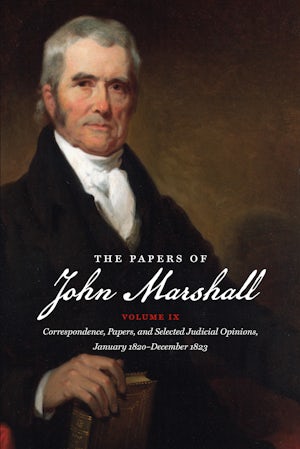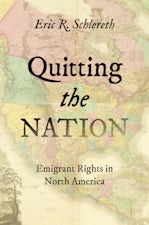The Papers of John Marshall
Volume IX: Correspondence, Papers, and Selected Judicial Opinions, January 1820-December 1823
Edited by Charles F. Hobson

440 pp., 6.125 x 9.25, 5 illus., appends., notes, index
-
Paperback ISBN: 978-1-4696-2348-1
Published: March 2015
Published by the Omohundro Institute of Early American History and Culture and the University of North Carolina Press
Buy this Book
Published by the Omohundro Institute of Early American History and Culture and the University of North Carolina Press
Besides chronicling Marshall's judicial activities, this volume yields illuminating glimpses into his private interests and family life. When not sitting in court, Marshall was busy revising his Life of Washington and preparing an edition of General Washington's letters.
About the Author
Charles F. Hobson, editor of The Papers of John Marshall, is a resident scholar at the William and Mary School of Law.
For more information about Charles F. Hobson, visit
the
Author
Page.
Reviews
"Richly but not excessively annotated, the ninth volume of the Marshall papers provides scholars with the essential documents of the chief justice during four years of the middle period of his tenure on the Court. The editorial accomplishments remain high."--Journal of Southern History



